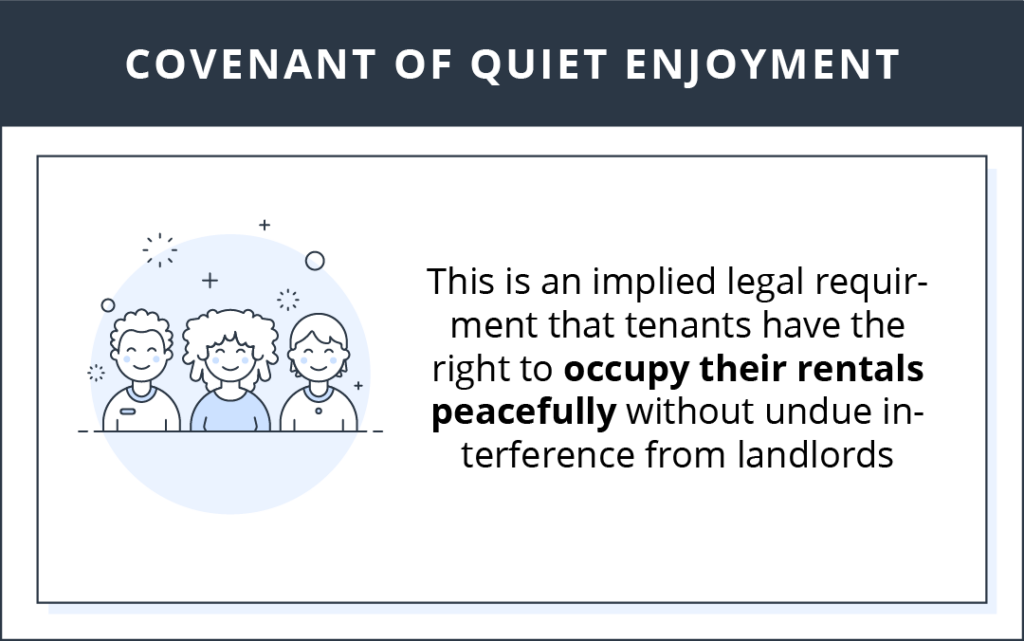9 min read
How to Get Property Management Clients (Lead Gen Methods)
With such a competitive and fast-paced real estate market, especially rental markets, knowing how to get property management clients is crucial for starting and...

For the most part, being a landlord can be a seamless and easy job if you have great tenants and stay educated – however, it’s important to know what a landlord cannot do. Especially for new landlords, sometimes there are things you aren’t aware of or you might not be familiar with and you must learn to protect yourself and your rentals from liability.
If you are new to property management, be sure to check out our thorough guide on how to be a landlord so you’ll be prepared in all aspects of the job. Researching and educating yourself on local and state laws pertaining to property management is essential so you can always follow the law as a landlord. Oftentimes, there are illegal things landlords do without knowing, which is why there are a few basic rules to know that generally apply everywhere – keep reading to find out how to always follow the law as a landlord.

When it comes to entering rental properties, landlords usually need to give at least a 24-48 hour notice – this varies from state to state, but it’s always a good rule of thumb to follow. Entering the property unannounced or unplanned is illegal and a violation of tenants’ rights. Just because landlords may own the rental property does not give them the right to enter the property any time they want – it is a lease violation. The only exception to this rule is in case of an emergency, landlords are allowed to enter the property without consent. If they believe the property has been abandoned then they may also enter. Types of emergencies include the following:
Turning off the electricity, heat, AC, or water in a rental property, whether it’s because you have a trouble tenant or going through the eviction process, is illegal. This violates the warranty of habitability which is an implied legal sense that landlords have to make repairs to ensure the rental unit remains habitable. Critical things that apply to the warranty of habitability are obviously, HVAC, water, broken electricity, or pest infestations.
Additionally, turning the heat, AC, or water off can be categorized as a self-help eviction. This is any action that landlords might take to evict a tenant that is not allowed in the state and local laws pertaining to evictions. Another example of an illegal self-help eviction would be changing the locks – landlords cannot do this at any time even if an eviction process is on-going.
Hands down one of the most vital rules to follow as a landlord are housing discrimination laws – below are some more specifics, but be sure to read here for five important laws landlords should know.
Learn more about the Fair Housing Act to avoid catching a discrimination charge. Enroll in the Fair Housing for Landlords course today!
Communication is a huge part of being a successful landlord and it’s important that your tenants can easily reach you and know exactly how to contact you – especially in case of emergencies. Landlords must be responsive when it comes to making repairs – while it depends on the state, landlords usually have a given amount of time they must respond to tenants’ complaints and property repairs. Ignoring your tenants and rental property could lead to further damage and frustration.

The covenant of quiet enjoyment is something that is an implied legal requirement and is often outlined in leases. Basically, it means tenants have the right to occupy their rented space peacefully without undue interference from landlords; it also means landlords must take care of issues that are disruptive to the covenant of quiet enjoyment. Examples of landlords interfering are things such as harassment or entering the property unannounced. Issues landlords must resolve that pertain to the covenant of quiet enjoyment include noise complaints or maintenance requests.
It’s also important to recognize that landlords might have to resolve issues caused by tenants themselves that might be infringing on other residents – technically, tenants cannot violate the agreement since it’s one-way. These types of instances include things like tenants throwing parties that are extremely loud and crowded which obviously affect others in the building.
Make sure to check specific city and state laws when it comes to raising rent. However, generally, landlords cannot raise the rent during a long-term lease but can raise it if/when they offer a lease renewal. Month-to-month leases are different in that landlords are allowed to raise the rent with proper notification and in-writing.
If you live in an area where there are rent control laws, you might have different requirements. For example, as of 2020, California landlords cannot raise the rent more than five percent plus the local rate of inflation in one year. Other states and areas with rent control restrictions include the following:

When it comes to what a landlord cannot do, it might seem like there are a lot of requirements, but overall it’s easy and simple to follow the correct processes as a landlord and there are a few tips to adopt that will ensure you can always follow the law:
Being a landlord doesn’t have to be a stress-filled job – as long as you follow the right protocols and are familiar with what a landlord cannot do, you’ll be able to run a successful rental business and see the return on your investment.
Disclaimer: TurboTenant, Inc does not provide legal advice. This material has been prepared for informational purposes only. All users are advised to check all applicable local, state and federal laws and consult legal counsel should questions arise.
9 min read
With such a competitive and fast-paced real estate market, especially rental markets, knowing how to get property management clients is crucial for starting and...
8 min read
Condo property management, on its face, is exactly what it sounds like — overseeing one or many units in a condominium building...
7 min read
Finding the ideal commercial or residential rental property can be challenging for renters, as it may only meet some of their specific...